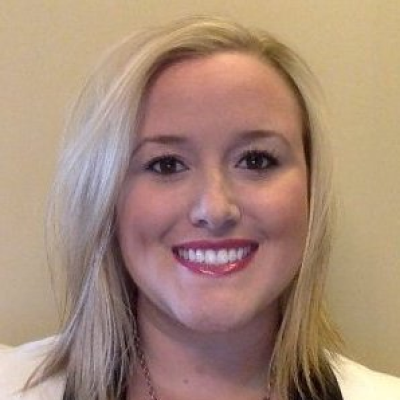Qualified professionals with a background in Health Policy, Management and Digital Health (formerly Informatics) are in demand due to an aging and growing population and workforce, new technologies and restructured health care systems.
York Health Studies graduates are working in all sectors, including healthcare, non-profit, private, government and in many occupations such as health policy analysts, program managers and analysts, data analysts, community health and education associates, as investigators with the Ontario Ombudsman’s Office, software developers, health finance analysts, and much more. Below is a sampling of some of the many careers that graduates have gone on to:
Careers:
- Health Systems Planner
- Health Care Manager*
- Administrator in a community health or health care organization
- Quality Performance Specialist
- Account Coordinator in Health Management/Disability Management
- Project Coordinator
- Research Coordinator
- Data Analyst
- Health Finance Analyst
- Health Information Systems Analyst*
- Health Information Systems Analyst*
- Systems Designer
- Systems Integration Specialist
- Software Developer
- Health Human Resources Analyst
- Health Policy Analyst
- Health Policy Researcher*
- Health Care Advocate
- Community Health Worker
- Community Health and Education Associate
*According to Canadian Business Magazine, Health Care Manager, Information Systems Analyst & Health Policy Researcher are among Canada’s best jobs for salary and demand outlook.
With further postgraduate training:
- Medicine
- Nursing
- Physiotherapist
- Occupational Therapist
- Teacher
After graduating from the Health Studies program at York, I went on to pursue my post graduate studies in Human Resources and Management at McMaster University. Upon completing my post grad, I got my first internship opportunity with the Mackenzie Health Hospital to recruit volunteers and students for the new Cortellucci Vaughan Hospital. From there, I went on to obtain full time employment at Bayshore Healthcare as an HR Assistant recruiting and onboarding hundreds of nurses and Personal Support Workers. Currently I’m working at the Ontario Medical Association as the HR Administrator. I’ve always had a passion to make a difference in our healthcare system and knowing that I’m playing a small role in it today really inspires me to strive for something bigger everyday.
I had good professors and Teaching Assistants at York who really supported me and ensured that I succeeded in my program. I am also grateful for the decision to join the Student Health Ambassador at York (SHAY) program to be able to network with faculty members, students, and other members in the program, plus gain strong professional connections.

Bachelor of Health Studies
Human Resources Administrator
Ontario Medical Association
Brad is a Project Manager within the Improvement Project Management Office at St Michaels Hospital, a corporate team designed to support clinical programs and support services in the implementation of sustainable efficiency strategies. He is a graduate of the York University Health Policy program.
Brad began his career as a volunteer with health-focused non-profits. Later he took on a number of analyst roles with the Department of Medical Imaging, operating jointly between University Health Network, Sinai Health Systems and Women’s College Hospital, where his team focused on improvement, quality and access to care strategy.
“Health studies at York is an excellent foundation to begin a career within the health field. The knowledge I gained and the caring and industry-leading faculty were a substantial contributor to my career.”

Bachelor of Health Studies (BHS Spec. Hons) (Health Policy)
Project Manager, Improvement Project Management Office (iPMO)
St Michaels Hospital
Within four months after graduating from York University’s Health Management program, Jennifer Catton started as a Business Analyst with the Department of Medical Imaging, which spans University Health Network, Sinai Health Systems and Women’s College Hospital. She was part of a team that used new technologies to reduce patient wait times at MRI departments, ultimately saving $2.5 million each year. She later moved on to a position within the same department as a Senior Analyst where she was responsible for developing the department’s strategic plan. Today she is the Director of Outpatient Strategy & Diagnostic Performance at the University Health Network where she uses her skills in strategic/operational planning, process improvement, change management, and project management to lead large-scale (organize-wide, regional) transformations.
“I continue to use the knowledge and skills I learned in the health management program at York. Each professor brought the course material to life through expertise and a passion for the subject matter. They not only gave me the skills and tools I needed to succeed but also instilled within me a strong motivation to make a difference.”

Bachelor of Health Studies (BHS) (Health Management)
Director, Outpatient Strategy & Diagnostic Performance
University Health Network
After graduating from York with a Bachelor of Health Studies degree specializing in Policy, Julia started her career as a Divisional Coordinator for Peel Public Health’s Chronic Disease and Injury Prevention unit where she worked on planning activities and strategic Initiatives (i.e. Supportive Environments for Healthy Living, Tobacco Control, Oral Health, School Health etc.).
Today, Julia is a Senior Policy Analyst with York Region where she is developing a diversity and inclusion policy and charter for the Region. This work will ensure that York Region continues to make its communities as welcoming, safe and inclusive as possible. On a day-to-day basis, Julia uses the theories taught in her undergraduate courses, specifically the wide array of legislative and regulatory interventions, administrative practices and financing and funding models learned throughout her time at York. My professors have had a profound influence on me.

Bachelor of Health Studies (BHS Spec. Hons) (Health Policy)
Senior Policy Analyst, York Region
Creating customized systems and leveraging big data to improve health care delivery and decision making.
Shirley is a health informatics professional who graduated from York’s Health Informatics program and went on to complete a Master of Science in Health Informatics at the University of Victoria. In her capacity as an Informatics Specialist with the Regional Geriatric Program of Toronto located at Sunnybrook Health Sciences Centre, she has developed various customized data management systems for clients across Southern Ontario to effectively streamline the flow of data and facilitate health professionals’ access to health information. Shirley’s main interests are mobile Health, health care operations, and the role of big data in evidence-based decision making.

Bachelor of Health Studies (BHS) (Health Informatics)
Information Coordinator, Regional Geriatric Program of Toronto
Sunnybrook Health Sciences Centre
Valuable blend of technical skills and business savvy.
Ratika Goyal has always had a technical mind, and she was pleased to learn that she could use it to make an impact on healthcare with a degree at York. She came to York ahead of her class after taking some Advanced Placement (AP) courses in high school, thinking that she wanted to go into Business and Information Technology (IT). She ended up graduating in three years with an Honours Bachelor's degree in Health Studies, specializing in Health Informatics, and soon after worked as a Data Analyst at St. Michael’s Hospital. She knew her mind from the beginning and worked on a direct path to success.
“The health informatics program helped me merge my business and IT focus with my interest in healthcare,” said Ratika.
The program allowed her to learn about the different aspects of healthcare as she liaised with the Local Health Integration Networks (LHINs), various hospitals, and the Ontario Ministry of Health and Long-Term Care. It was her class with professor Serban Dinca-Panaitescu, in the school of Health Policy and Management, that taught Ratika about the technical side of healthcare that has helped her in her current position at the University Health Network in the Shared Information Management Services department as a Business Analyst. Ratika also received advice and mentorship about the real world of healthcare from lecturer Julie Kim in her eHealth course. “After speaking with Julie, I applied for the position,” said Ratika.
As a business analyst, she worked on a mix of project-based work and IT-based work. While she doesn’t work with code, she did work with different businesses in healthcare by translating their software needs to the technical workers on her team.
“In class, we did a lot of group work and interactive activities. We were taught the basics of different initiatives that are happening right now in healthcare, and having that knowledge really helped me. When I started I had an idea of what was going on,” said Ratika. Now she continues to move further up in her career as a Project Analyst at University Health Network.
Ratika wants to work in different areas of healthcare in the future to be able to experience the healthcare system from all angles. “Once I get a better sense of the big healthcare picture, I will be better able to advocate for change and be in a decision-making role,” said Ratika about her future steps.

Bachelor of Health Studies (BHS) (Health Informatics)
Project Analyst at University Health Network
Building better health care systems requires creative planners who look beyond traditional approaches to build new partnerships and create synergies to maximize the use of health care resources.
Hope Russell worked as a Planning, Integration and Community Engagement Consultant with Ontario’s Central West Local Health Integration Network (LHN), one of 14 regional LHNs set up by the Ontario government to plan, allocate and coordinate health care resources to meet the specific needs of their communities.
“Part of my job was to bring together different health service providers and to integrate their services to improve access, capacity, and the continuum of care” Hope explains. “The key to improving access to healthcare services for people living in our region involves working closely with the physicians in our community. Additionally, I was involved in supporting a group of physicians across two LHNs that came together during the SARS outbreak to improve communications across regional boundaries of care and to work together to improve access to care, regardless of geography.”
Hope began work with the Regional Municipality of York, as a Senior Program Analyst, Strategic Service Integration & Policy in the Community and Health Services Department. She developed innovative and strategic responses to social programs, and plans in responding to human service needs, ensuring those align with provincial and federal priorities.
She hopes to continue her work with the Regional Municipality of York in a new position, as a Supervisor, CQI & Policy and Program Support.
While post-graduate education is usually a requirement for these types of jobs, Hope says York’s health studies program provided her with an excellent foundation. “It encourages students to assess things critically and to think outside the box. As well, the program exposes you to provincial and national experts in health policy that are leading the reform of our health care system. Being able to apply that creative thinking approach and knowing who to turn to for expert assistance and advice are both essential to being able to do my job effectively,” Hope says.

Bachelor of Health Studies (BHS) (Health Policy)
Supervisor, CQI & Policy and Program Support
Enjoy technology and want work that helps people?
Every sector needs technological applications, and health is no different. In fact, the need to move to electronic patient records in Canada and globally virtually assures students of a job. Employers will be hospitals, information technology, and consulting firms, pharmaceutical companies, and government organizations such as the Canadian Institute for Health Information, or the provincial government’s SmartSystems for Health.
Perspectives on health policy and management, which York’s Health Informatics program includes with its core informatics-proved to be particularly valuable to Sadiq Raji in his job as a Health Human Resources Analyst with the Canadian Institute for Health Information.
“I currently manage the National Nursing Database, which contains information on supply, demographics, education, employment, and mobility trends related to nurses,” Sadiq explains. “We conduct analyses and provide data to governments, regulatory bodies, educational facilities, hospitals, other institutions, and researchers. A knowledge and understanding of health policy and management provides me with critical, additional context for the work we do with the data itself.”
Sadiq continues to move up in his field as a Senior Analyst at the Canadian Institute for Health Information.
For Sadiq, the opportunity to combine interests in health and health care, a desire to learn- and an ongoing fascination with information systems, technologies, and management continue to make health informatics a rewarding career.

Bachelor of Health Studies (BHS) (Health Informatics)
Senior Analyst at Canadian Institute for Health Information
Related Websites
Canadian Centre on Disability Studies
Canadian Institute for Health Information
Canadian Institute of Public Health Inspectors (CIPHI)
Canadian International Development Agency (Employment Opportunities)
Canadian Public Health Association (CPHA)
Canadian Research.org (Academic Research Positions in Canada)
Charity Village (Non-profit positions)
Coach: Canada’s Health Informatics Association
International Development Research Centre (Career Opportunities)
Ministry of Training, Colleges and Universities
National Listing of Provincial OpportunitiesPublic Health Agency of Canada
Ontario Health Promotion E-Bulletin
Ontario Internship Program
Ontario Municipal Jobs
Ontario Public Health Association
Ontario Public Service Careers
Public Service Commission (Government of Canada)
Society for Disability Studies (SDS)
York University Career Centre

Learn More
For more information about this degree, visit the School of Health Policy and Management website.
